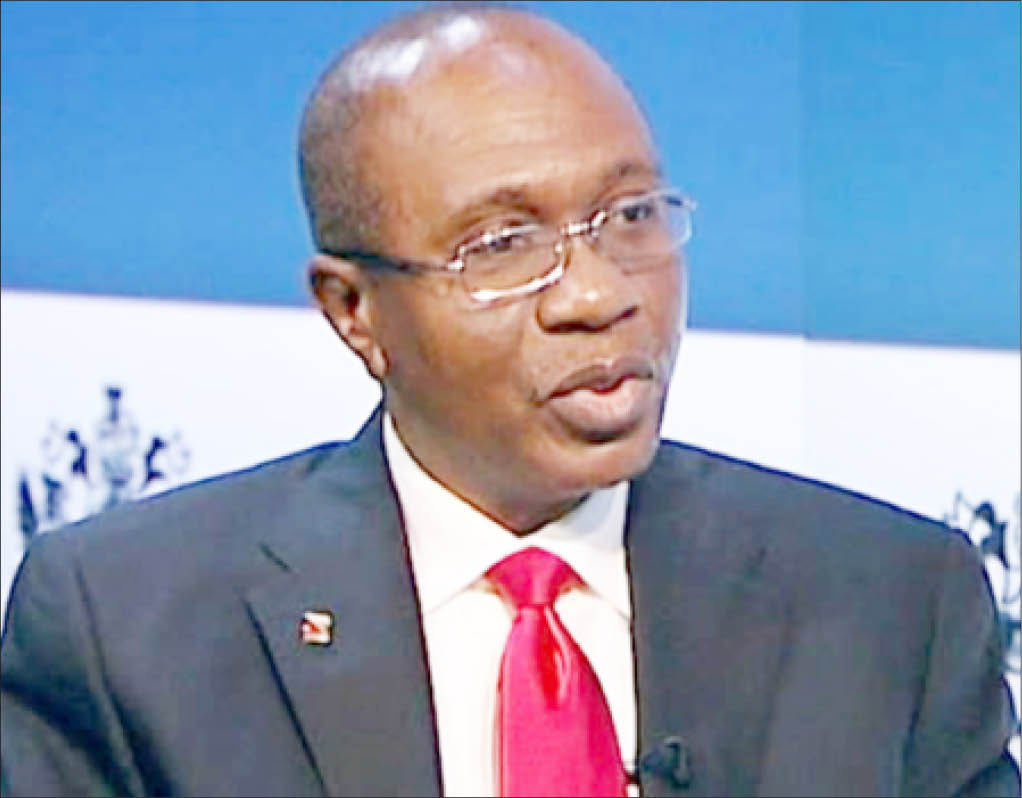The Governor of the Central Bank of Nigeria (CBN), Godwin Emefiele has said the intervention of the CBN in the real economy is to facilitate the development of financial markets through the creation of easy access to credit for investment and production.
Emefiele made this known while delivering a paper at the 40th Anniversary/Convocation lecture of Ekiti State University, Ado-Ekiti with the topic, ‘The Role of Central Banks in Managing Economic Downturns’, was represented by the CBN’s Deputy Governor in charge of Corporate Services, Mr Edward Adamu.
- Nigeria vs Ghana: CAF Doctor Dies At MKO Abiola Stadium
- Pupils sit on floor in 50% Nigerian schools – UBEC
The CBN boss said that the idea behind the bank’s interventions in the real economy was to indirectly influence the cost of production for firms and affect prices positively by improving the flow of credit.
Emefiele also said that due to the limited fiscal space as a result of the significant drop in government revenue, the CBN had to intervene with development finance tools and some monetary policy innovations to aid recovery without jeopardising price stability.
He said that central banks in both advanced and emerging markets embraced quantitative easing in order to support their economies toward recovering from the global financial crisis of 2008/2009 and the associated economic downturn triggered by the COVID-19 pandemic.
He also noted that the present administration has granted over N3 trillion in intervention funds, which has helped generate employment and improve productivity.
He said, “The intervention of central banks in development financing is not new as it dates back to the 1920s.
“Many central banks in advanced, emerging and developing economies during the recent COVID-19 pandemic supported their fiscal authorities. The aim is to aid the recovery of their economies following the significant decline in global growth occasioned by the pandemic.
“These central banks, particularly in developing countries, intervene in the real economy to enhance the transmission mechanism of monetary policy actions as well as facilitate the development of financial markets through the creation of easy access to credit for investment and production.
“It is thus undeniable that development finance interventions are frequently an integral part of the recovery strategy in most countries.’’
The CBN governor expressed worry that the country’s manufacturing sector contributed less than 15% of the Gross Domestic Product (GDP) and decried the continuous importation of many commodities that Nigeria had the capacity to produce and export.
He said, “To address this challenge, we have accepted the charge of President, Muhammadu Buhari for the country to produce what it eats and eat what it produces.
“The CBN, working with Deposit Money Banks and participating financial institutions, is focused on critical areas such as the agricultural and manufacturing sectors.

 Join Daily Trust WhatsApp Community For Quick Access To News and Happenings Around You.
Join Daily Trust WhatsApp Community For Quick Access To News and Happenings Around You.

